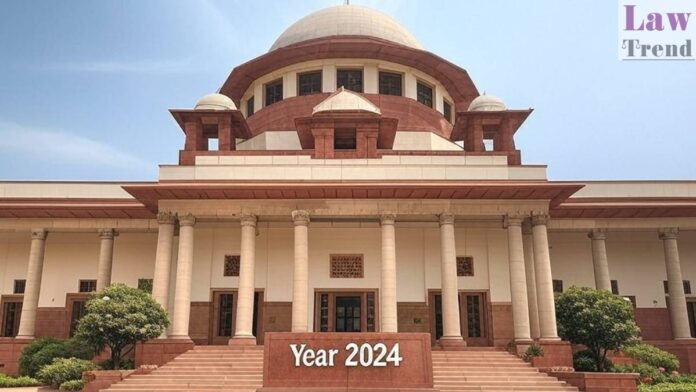As 2024 comes to a close, it’s time to reflect on some of the monumental decisions made by the Supreme Court of India, which have not only impacted the legal landscape but also set precedents affecting various layers of society and politics. From the cancellation of the remission of Bilkis Bano case convicts to decisions on reservation policies and child pornography, the Supreme Court has played a pivotal role in shaping new directions for the nation.
Key Decisions of the Supreme Court in 2024:
1. The Bilkis Bano Case:
In a significant ruling at the beginning of the year, the Supreme Court overturned the early release of 11 convicts in the Bilkis Bano case, granted by the Gujarat government. These convicts were found guilty of raping Bilkis Bano and murdering seven of her family members during the 2002 Gujarat riots. The apex court declared the government’s decision as contrary to justice.
2. Article 370:
The court made a major decision regarding Article 370, rejecting multiple petitions that sought the reinstatement of this constitutional provision, which had granted special status to the state of Jammu & Kashmir. This special status was revoked by the central government on August 5, 2019. The court upheld the government’s decision and dismissed the review petition in December 2023.
3. Electoral Bond Scheme:
Ahead of the general elections, the Supreme Court struck down the central government’s electoral bond scheme, declaring it unconstitutional and arbitrary. Led by former Chief Justice D.Y. Chandrachud, a five-member bench stated that the scheme promoted corruption.
4. Reservation Policy Decision:
The Supreme Court also made a significant ruling related to the reservation system, stating that within the Scheduled Castes (SC), certain sub-castes are particularly backward and rightfully deserve a sub-quota. The decision allows states to identify these extremely backward classes within the SCs and provide them with a separate quota.
5. Rights in Marital Issues and Social Justice:
Throughout the year, the Supreme Court has strengthened women’s rights in marital cases and delivered important decisions on environmental protection, including pollution control and biodiversity preservation. It also enforced rights for the underprivileged sections of society, including Dalits and Adivasis.
6. Child Pornography:
In September, the Supreme Court overturned a Madras High Court order that had declared viewing and downloading child pornography as not an offense under the POCSO Act and IT laws. The apex court advised the central government to replace the term ‘child porn’ with ‘Child Sexually Abusive and Exploitative Material’ (CSEAM) in legal language, emphasizing that possession and viewing of child pornography are both criminal offenses.
7. Anti-Bulldozer Action:
This year, the Supreme Court also put a stop to the so-called ‘bulldozer justice,’ deeming it unconstitutional and illegal. The court clarified that not even convicts, let alone accused individuals, should face bulldozer action and that any action against illegal constructions must follow due process, including a mandatory 15-day notice period as per guidelines.
These decisions underline the Supreme Court’s crucial role in advocating justice and reform, reflecting its enduring impact on India’s societal and political spheres as 2024 draws to a close.




